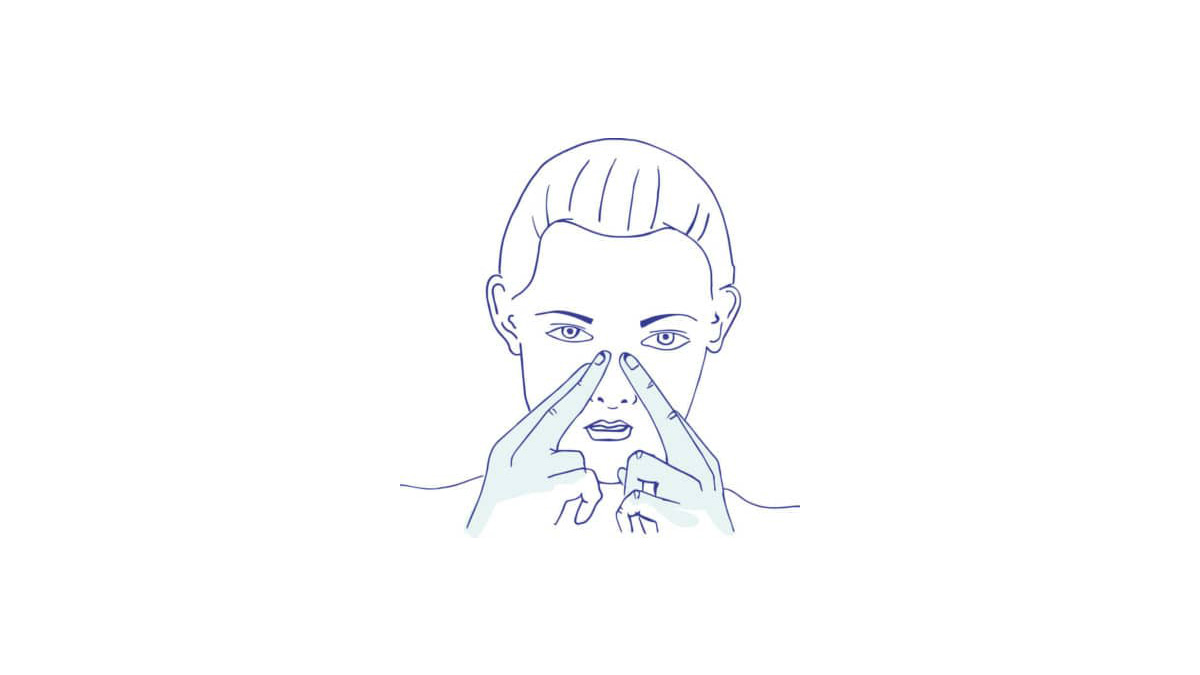Does it matter if you breathe through your nose or through your mouth? It does! We explain the advantages of nasal breathing, describe how breathing is related to snoring and give tips on which snoring therapies help you breathe freely.
What happens when you breathe?
Breathing is a basic prerequisite for life. At rest, a person takes about 14 breaths per minute – completely automatically and unconsciously. With every normal breath, about half a litre of air is taken in, and with exertion this can even be ten times as much! Calculated on a daily basis, this amounts to 12,000 litres of air.
The respiratory process can roughly be summarized as follows: We inhale oxygen via the air around us, which diffuses into the blood via the pulmonary alveoli and is distributed to the target organs. Our cells are dependent on this oxygen. Only in this way can vital processes take place in our body, such as the generation of energy in the cells (cell respiration). In return, carbon dioxide is exhaled as a metabolic end product. This is the principle of the vital gaseous exchange.
Not all forms of breathing are alike
Air can enter the lungs in two different ways. On the one hand, it can pass through the nose, which is called nasal breathing.
If nasal breathing is not possible – for example, because the nose is congested or blocked – the air flows through the open mouth, past the tongue and palate, into the throat and further through the trachea into the lungs. This is called mouth breathing.
It is much healthier to breathe through the nose than through the mouth. Nasal breathing fulfils many functions that are important for the entire organism:
Filtering out foreign particles and pathogens
The inside of the nose, i.e. the nasal passages and nasal conchae, are lined with a very special mucous membrane, which has many microscopically small movable hairs (or cilia). These cilia prevent foreign particles such as dust and dirt particles as well as germs and pathogens present in the air from entering the airways. These foreign bodies are filtered and get caught in the small hairs. If something does inadvertently penetrate the nose, it is trapped by the mucous produced by the nose . The mucous fulfils a cleaning function, absorbs small impurities and particles and transports them towards the nostrils. In addition, special proteins and various enzymes are produced in the mucous membrane. They support the protective function and serve as defensive forces.
“Air conditioning” and humidification of the air
However, the nasal mucous membrane also fulfils an important purpose: it raises the air temperature almost to body temperature (approx. 34 degrees Celsius) and moistens it at the same time. Even at outside temperatures of -10 degrees Celsius, the air reaches over 30 degrees by the time it reaches the lungs. When it is cold, more blood flows into the erectile tissue in the conchae of the nose with the result that the mucous membrane of the nose swells. As the blood flows past this cushion of mucous membrane, the cold air is warmed up before it reaches the lower airways. Conversely, extremely hot and dry breathing air is cooled and enriched with moisture as it flows through the nose.
Better oxygen supply
After all, breathing through the nose has a definite advantage over breathing through the mouth in terms of oxygen supply: Nasal breathing leads to a 10 to 15 percent higher oxygen saturation of the blood. This means that our blood is enriched more strongly with oxygen and the organs are better supplied with this vital gas.
According to studies the reason for this is nitrogen monoxide (NO), which is formed in the paranasal sinuses
Nasal breathing and snoring
Problems with breathing through the nose can cause a snoring problem. If the nose is congested or misaligned – for example due to a cold or an anatomical feature such as polyps or the like – the respiratory resistance increases. One then has problems breathing in and out without difficulty. The resistances and constrictions lead to turbulences in the respiratory air flow. The surrounding tissue starts to vibrate as a result. We perceive the resulting noise as snoring.
In many cases, disturbed nasal breathing is also “only” one of the causes of the snoring problem. If the air supply through nasal breathing is insufficient during sleep, the body unconsciously switches breathing through the mouth. Open mouth snoring – a form of snoring in which the flow of air causes the palate tissue to vibrate, is promoted by oral breathing.Feel free to check out our simple nasal snoring test.
Snoring aids for unrestricted nasal breathing
Nasal dilators and nasal strips widen the nostrils and improve nasal breathing.
Nasal irrigation removes mucus and secretions from the nose and is particularly helpful for colds and allergies.
Snoring surgery is often unavoidable in cases of severe anatomical respiratory restrictions (e.g. deviation of the nasal septum, enlarged conchae, polyps).
Snoring remedies – Help for every snorer.
Nasal dilator purchasing advisor
What must you take into consideration when making a purchase? See all our nasal dilators presented here.
Find the solution for your snoring with our free snoring test
Find the solution for your snoring with our free snoring test.
Mandibular advancement device (MAD) purchasing guide
Advises you what you should pay attention to when buying a mandibular advancement device (MAD). We present different models and technical approaches here.
Medical Doctor, Berlin
Jan Wrede works as a medical doctor in Berlin. He studied medicine at FAU University in Erlangen-Nuremberg and Semmelweis University in Budapest. He had already written numerous scientific articles during his studies, especially on the subject of snoring.
